Nerd culture has experienced something of a resurgence in American pop culture, and collector culture has always been a huge part of nerd culture. Those with extensive collections of vintage comic books or tabletop games now have plenty of social capital with which to work.
Careful word usage, on the other hand, is still not in vogue. Most writers don’t care whether good word choice is in fashion or not—good writing is its own reward.
Should you use collectable or collectible? Read this article, and you’ll know.
What is the Difference Between Collectible and Collectable?
In this post, I will compare collectible vs. collectable. I will use each of these words in at least one example sentence, so you can see them in context.
Plus, I will show you a helpful memory tool that will make choosing collectible or collectable a bit easier.
When to Use Collectible
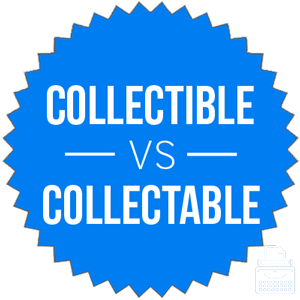 What does collectible mean? Collectible can be a noun or an adjective.
What does collectible mean? Collectible can be a noun or an adjective.
As a noun, collectible refers to an item valued for its rarity by collectors. Some people collect rare coins or sports memorabilia. Other people collect historical artefacts or replicas of movie props.
Here are some examples collectible in a sentence,
- Jake and Mary have an entire room in their home devoted to collectible Star Wars
- The market for sports collectibles is fraught with counterfeit items and shady dealers.
- Old computers, it seems, are becoming hot collectibles. And so are many of the items associated with them. –The Wall Street Journal
Collectible can also be used as an adjective, where it describes the quality of being valued by collectors.
When to Use Collectable
What does collectable mean? Collectable is an alternative spelling of the same word. Most dictionaries list is as an accepted variant.
As a general rule, collectable is the British spelling of the word, and it is much more common in British English than American English.
- Tom Keating conned the art world by faking grand masters. Branded a loveable rogue by the public, his work is now collectable in its own right as Donald MacGillivray reports. –The Guardian
The below charts graph collectable vs. collectible in British and American English, respectively.
British English:
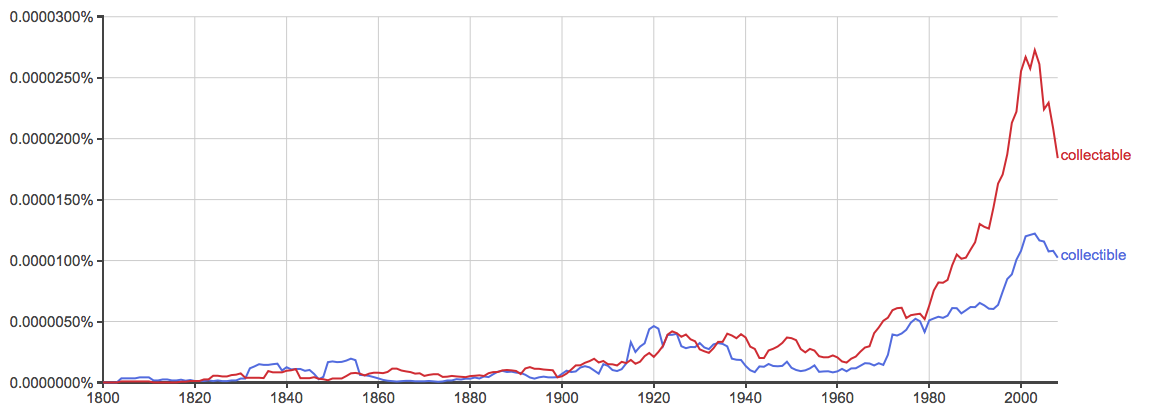
American English:
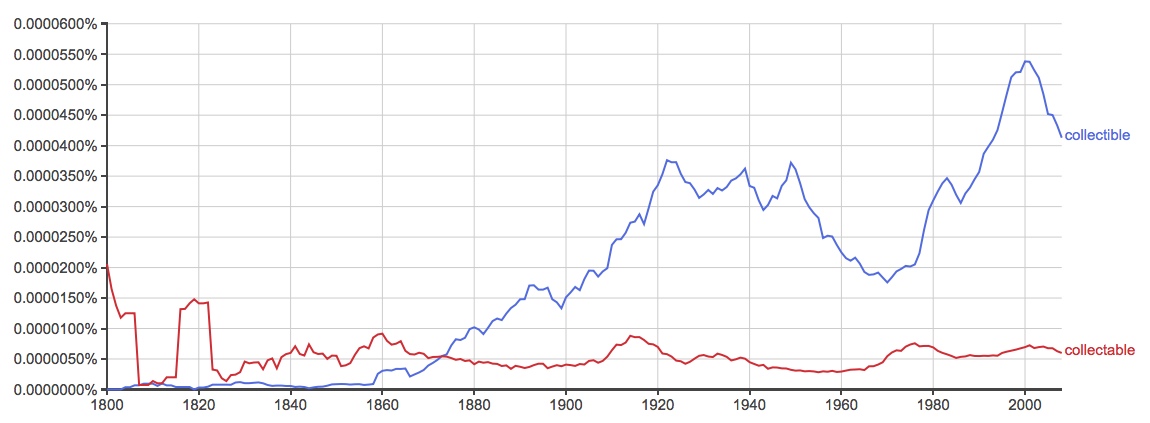
As you can see, British English users are more likely to use collectable as a general matter than their American counterparts.
Interestingly enough, however, their use in British English is much closer when you pluralize the word: collectables vs. collectibles.
British English:
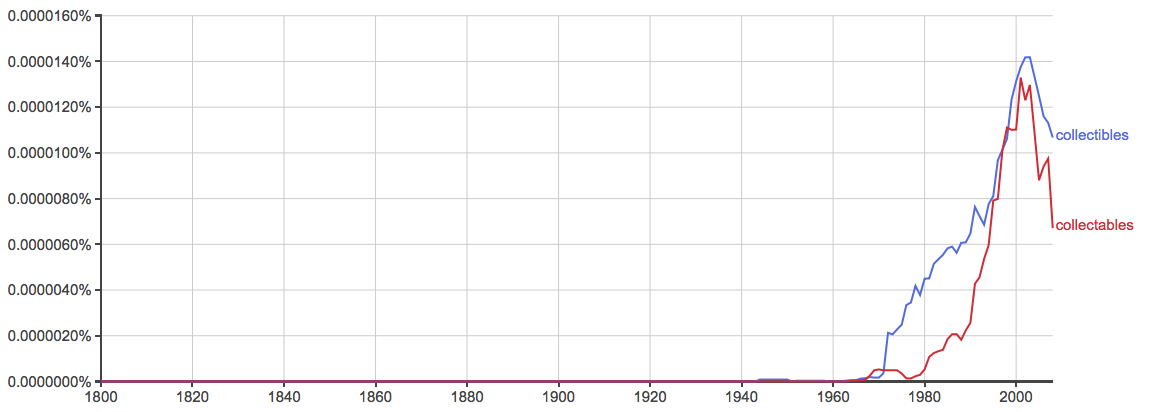
I’ve isolated the words’ use as nouns by pluralizing them. As you can see, collectibles is now much closer in use to collectable. It’s even a bit higher.
As for the American spelling, the same gap remains.
American English:
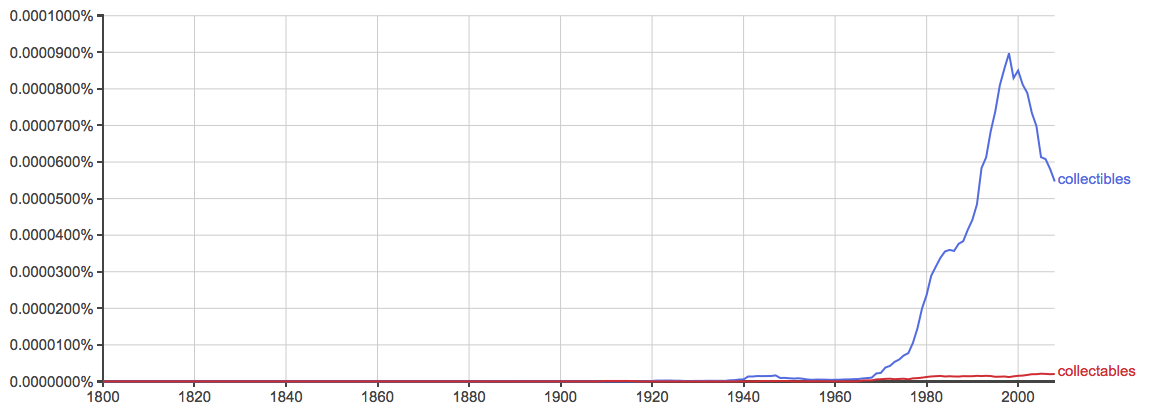
As adjectives, the story is a bit different. The British are much more likely to use collectable, while Americans stick with collectible in this sense.
British English:
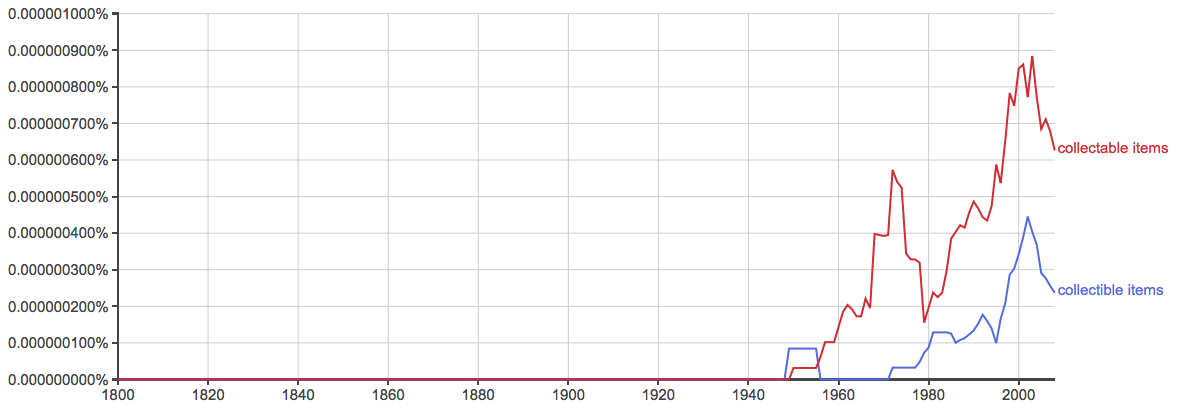
American English:
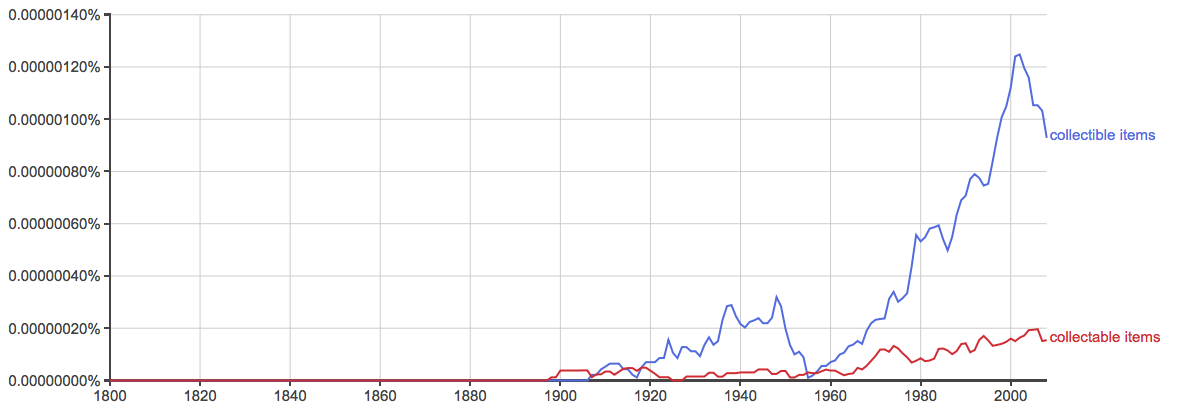
None of these charts are 100 percent exhaustive in their scope, since they only look at books published in English since 1800. Still, they clearly illustrate long-term usage trends in these language communities.
Trick to Remember the Difference
How to spell collectable: Which word you choose depends on which part of speech you need, and the language preferences of your audience.
- Americans use collectible as both an adjective and a noun.
- British writers use collectable as an adjective, and both versions equally as nouns.
Since collectible has an I, like the American state of Illinois, you can easily remember to use collectible in American English.
Summary
Is it collectible or collectable? Collectible and collectable are alternative spellings of a word that can be an adjective or a noun.
- As an adjective, they mean valuable to collectors.
- As a noun, they refer to items that are valued by collectors.
- Americans prefer collectible.
- Britons prefer collectable as an adjective and use both versions as nouns.
Contents
